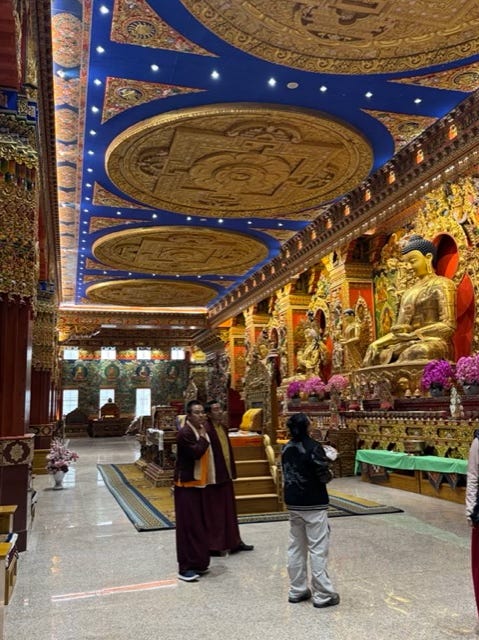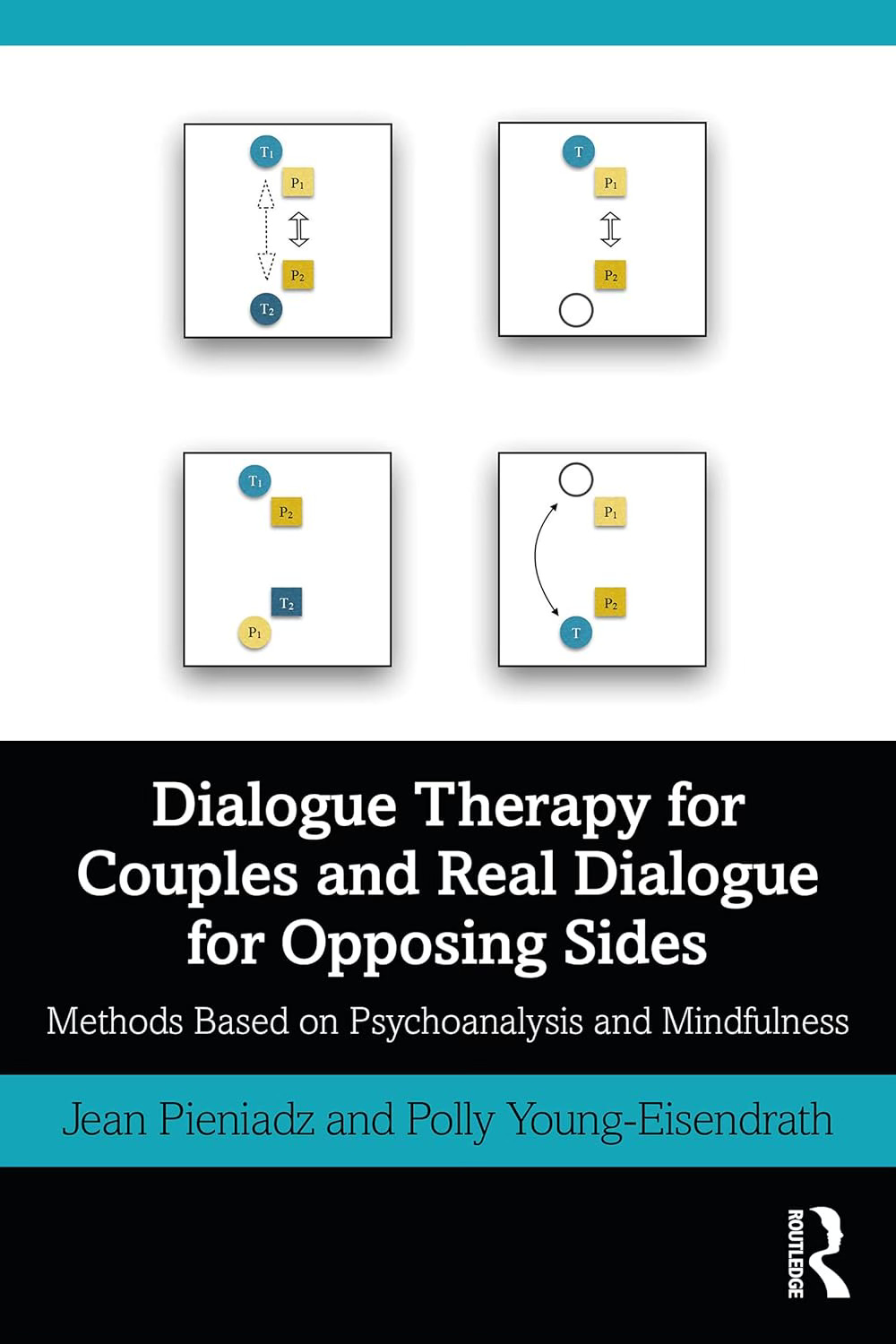Wake Up to the Golden Rule: Your Own Awakening Is Not for You
Set Your Intentions and then Check Your Compass: How Do You Love?
In my recent podcast interview with Zen Teacher and poet Henry Shukman, we talk about the confusion between awakening and escaping. Though you believe you want to awaken, you might be trying to “get out of town” or just jump off the merry-go-round. Whether taking psychedelics or following a mindfulness path, please recognize that you will not step out of your personality or circumstances.
Wherever you go, there you are (as Jon Kabat-Zinn commented decades go). If you have the rare opportunity to experience the undivided love of awakening or you happen into a Near-Death-Experience, you still come back to your messy life with no special instructions for your next steps.
That is way it is critical to recognize our intentions for awakening before we begin. Our intentions help us find the true path forward after our experience — how we deepen and expand what we experience through waking up.
Awakening allows us to peek into cosmic love and perhaps to experience the Big Hug that encloses us all – no matter who we are or what we do. This kind of experience is often shocking and always disconcerting and should lead to a bigger and easier way to love — yourself, others, and life itself.
In many spiritual and religious paths, individuals receive training before they step onto the path of awakening. Traditionally, those introduced to the mysteries or the transcendent learn first to be good humans. This kind of training comes with a label that says “You Are Not Doing This for Yourself.” I have outlined a few rules of thumb below about practicing Undivided Love, as I call awakening. No matter how uplifting awakening is, you will net reap its benefits more if you already know how to practice the Golden Rule, stated below from the Bible:
"So whatever you wish that others would do to you, do also to them, for this is the Law and the Prophets."
— Matthew 7:12, English Standard Version
If you are awake and you have integrated it, you know this experience in your bones and you go against it only when you fail yourself.
Preparations
Set Your Intentions Before You Begin: Before acting, clarify and set your intentions about what you are seeking from taking a psychedelic, going on a mindfulness or meditation retreat or doing an immersive yoga or dance retreat. Are you seeking ecstasy, revelation, insight or escape? Too often people are trying to escape their human condition instead of strengthening their ability to practice undivided attention and compassion.
Take an inventory of your own subjectivity (your own Snow Globe): Ask a friend to sit down with you and be a witness to your intentions and desires. How will you transform spiritual ideals or insights into better relationships with yourself, your family, you society and your species? Are you feeling primarily divided and split between “sides” in yourself or with others? Even before you begin, speak to your friend about aims or goals for “undivided love” and how the “two sides” are one whole and interactive dynamic. How will you bring new feelings, thoughts, and images into your everyday reality with your neighbors, your partner (or ex-partner), parents, children, and other important people in your life?
Check Your Compass After You Come Back
After your spiritual experience: Sit down with your friend and begin to capture your insights in your own words. Bring them into language and see if your friend can “get” what you are saying and if the insights are aligned with your intentions for your retreat or journey.
If it was a profound or life-altering experience, then it is important to write down what you’ve grasped. Writing down, especially with a pen or pencil, embodies what may have passed swiftly by and now seems wispy or even overwhelming. It is a good idea to s-l-o-w d-o-w-n your desire to download your ideas into other people. You can write down your thoughts and feelings in images or words and then share this reflection with your friend and expand it and talk about it. Just as when you have lost a close friend through death or your home has been washed away in a flood, a spiritual awakening changes the context of your own identity — the space in which you live — and it takes time for your identity to get adjusted to the change. Be sure that your identity does not slide into alienation or narcissism in terms of “knowing more” than someone else or assuming to be “superior.”
Real Dialogue (Responsible Speaking & Listening)
Over recent years, I have been teaching and developing a skill called Real Dialogue. The skill has three mindfulness components: Speaking for Yourself, Listening Mindfully, and Remaining Curious. It asks the speaker to slow down and speak entirely from first-person experience. Yes, in I-statements, but also in a modest and mindful way: “I remember it like this…” “I have the impression…” or “I felt like this.” Each of these subjective statements reminds the speaker and the listener that the speaker is expressing only first-person insights and not saying “this is the way it is.” After a waking up, it’s a good idea to speak in first-person statements: it seemed like this, as I recall I and when I noticed, I…
If the listener is able, the listener should paraphrase or summarize what was said and say that back to the speaker, allowing the speaker to be mirrored and to examine the implications of her statements. “Here’s how I am understanding what you are saying… Did I get that?” Mindful paraphrasing of someone else’s cherishing insights should not sound like parroting, but more like looking around in the speaker’s new environment and trying to describe how you see it.
If the speaker and listener follow these two rules of conduct (especially if the listener checks “Did I get that?”), each person will grow in curiosity about what the other one is saying and experiencing. Then they can create an opportunity to authentically examine how spiritual teachings resonate with personal experiences by putting experiences into words and sharing them mindfully and with curiosity.
This practice enables us to integrate complex and unusual experiences into our lives in a way that feels genuine and transformative. If the fellows speaker says “Oh, I see what you mean!” and reflects us accurately, we begin to understand our experiences more fully. Having a friend hold up an interpersonal mirror is a very effective way to make sense of what might otherwise feel abstract or overwhelming.
Embracing Paradox
Many spiritual teachings and insights are rife with paradoxical happenings that challenge our conventional understanding. By engaging in dialogue, we can explore the layers of meaning within these paradoxes and discover how they relate to our daily struggles and triumphs. Each and every one of these experiences is a human one — had by a human being. Each of them can be attempted to be communicated as long as the intention is to be generous and helpful in sharing.
By speaking and listening in these ways, we learn to recognize each individual journey as unique. We learn to honor our own personal experiences and perspectives while also broadening into hearing about others. In this way, the mindful practice of Real Dialogue facilitates a transition from feeling confused or left out of community to sharing and being able to unpack the most sublime or complicated insights.
I heard or read that around 65% of people who have a profound Near-Death-Experience divorce afterwards because they feel the spouse cannot respect or understand them. They feel their dignity has been wounded by a person who “didn’t have the experience.” This kind of divisiveness is what we see everyday in political polarizations in which individuals refuse to believe or try to invalidate another’s experiences or beliefs. Certainly after a profound spiritual awakening, we must dismantle the barriers that hinder our ability to find curiosity and interest in the ways others understand what we are expressing. Embracing the fact that our unique human subjectivity colors every experience we have and that we certainly don’t have the same awakenings, will help us perceive the undivided love that encircles us all (not just those people who agree with us).
Amen
Bringing the reality and insights of undivided love or awakening into our daily lives is an ongoing process of awareness, expression, and listening. It requires a willingness to confront challenges, question assumptions, and engage in open conversations. In Real Dialogue, we have a powerful tool to navigate this journey with authenticity and grace. By exploring our experiences in dialogue, we create a bridge that spans the gaps between the sometimes ethereal fabric of the spiritual world and the tangible world of our everyday life. Let the reality and insights of undivided love guide our relationships with each other every step of the way. Amen.







